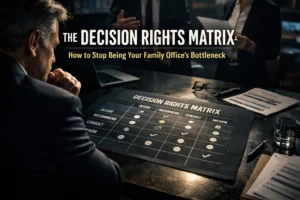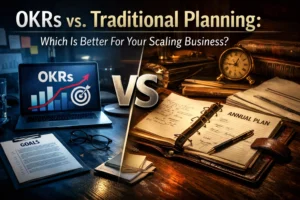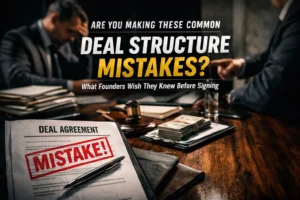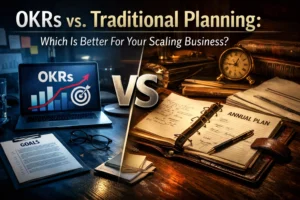Randee Noggle bought her house in Michigan for $151,000 in 2018. She paid cash, with inheritance left by her grandmother.
During the pandemic, her family fell on hard times. Her husband’s income working in the restaurant industry dropped, and Noggle was dealing with health issues. Her disability benefits and leftover inheritance weren’t enough to cover their bills. Facing credit card debt, student loans, car payments and overdue property taxes, the Noggles were in trouble. Bad credit kept them from getting a home equity loan.
Then Noggle found a company called EasyKnock, offering a “sale-leaseback” deal. She would sell them the house and get a portion of the equity up front as cash, then she’d rent the house and have the option to repurchase it, which she planned to do.
“It sounded too good to be true,” she said. “But at the same time, we were just desperate.”
Noggle is now suing EasyKnock in federal court, along with three other families in Michigan, alleging that the sale-leaseback deal was really a loan. Hers is among dozens of lawsuits around the country making similar claims.

EasyKnock told NPR it would not comment on this active litigation, but it has denied any liability in the lawsuits. The company says it is transparent with consumers that they are signing over the deed and that their monthly payments are actually rent. Its customers sign a document acknowledging the company “is not extending credit or making a loan of any kind to you or on your behalf.”
But with lawsuits like Noggle’s, the question of whether these sale-leasebacks function more like a mortgage than an outright sale could be decided in court, and the difference matters. Mortgages are subject to regulations that protect homeowners — like disclosures, rate caps, and requirements to verify that a person can repay the loan. The Truth in Lending Act also bans arbitration clauses in loan contracts, something EasyKnock has in their documents.
EasyKnock argues that its sale-leaseback deals are not loans, and therefore are not subject to those regulations.

Jeremy Potter, who co-authored a report on sale-leasebacks commissioned and paid for by EasyKnock, agrees that the structure of the deal is clear even if people are confused.
“So you start with a simple concept. I’ll sell my house, you lease it back to me,” he said. “This optimism, combined with the other complexities of how the product works financially, maybe you lose sight of that initial clarity.”
Prentiss Cox, a professor at the University of Minnesota and the former manager of the consumer protection division at the Minnesota attorney general’s office, said that although these deals are marketed as an alternative to a loan, people may not understand the difference.
“One of the problems with these equity-based product lending is that the company will point to the contract and say, see this? We’re very clear. This isn’t a traditional loan,” said Cox. “But homeowners are distressed. They need money. And to them, it’s often just seen as a loan.”
Officials in Michigan are not convinced by EasyKnock’s argument that these deals aren’t loans. In May, the state attorney general sent EasyKnock a cease and desist letter that alleges, among other things, that the sale-leaseback “constitutes a disguised loan with an effective annual interest rate in excess of Michigan’s civil usury statutes.”
EasyKnock told NPR that the Michigan attorney general’s characterization is “inaccurate” and that the company is cooperating with officials.

“It’s a question of what do the consumers think and understand about the product,” said Dr. Benjamin Keys, a real estate professor at the University of Pennsylvania. “If everyone goes into this saying, I know you’re telling me it’s not a loan, but I’m going to use it like a loan, then that’s problematic.”
EasyKnock says its deals have helped hundreds of people improve their finances, and that its contracts make clear it’s not a loan.
A court in Texas has previously grappled with whether these are disguised loans. In 2021, a judge determined that EasyKnock’s “sale-leaseback transaction is a mortgage under Texas law,” according to the opinion filed in a homeowner’s lawsuit. The judge writes that the homeowner “states that she understood the transaction to be a loan, not a sale of her home or transfer of her title and interest.” The judge also ruled that certain elements of the contract, specifically the arbitration clause, violate federal law.
EasyKnock said the case was “wrongly decided.”
That judge later vacated the opinion in that case to allow for a settlement, and EasyKnock sued their attorney for malpractice. That case has been stayed while the lawsuits against EasyKnock are ongoing. The same issues are now raised in 27 active lawsuits in Texas.
A recent NPR investigation found some homeowners who enter into these deals lose tens of thousands of dollars and few buy their houses back.
Cox said the complexity of these deals leaves homeowners vulnerable.

“You’re selling the most complex, opaque, difficult-to-figure-out products to people who are the most distressed, credit-impaired and sometimes desperate. It’s just a horrible combination,” he said.
EasyKnock says they “take great care and time” to ensure consumers understand the transaction.
As for Noggle, she thought EasyKnock would help her family stabilize their finances.
“In my mind, I’m like, okay, we get this money, we get ourselves out of this hole. We get ourselves caught up,” she said.
“We’re worse off than we were before EasyKnock, let’s just put it that way.”






